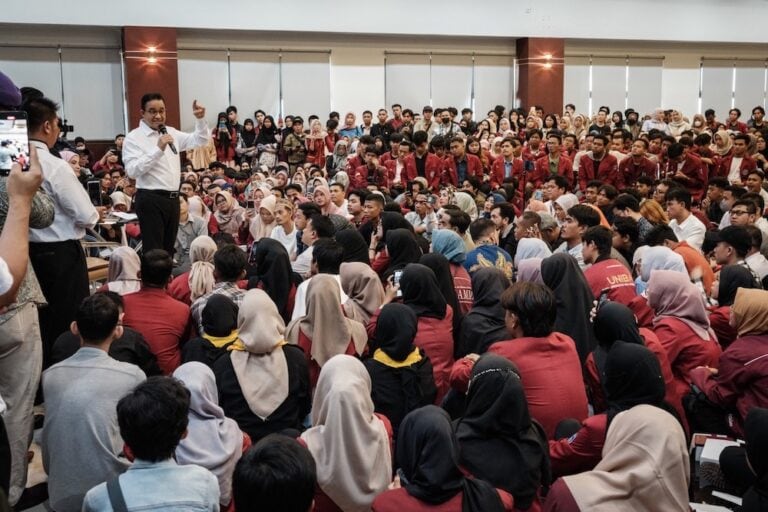(AJI/IFEX) – The Alliance of Independent Journalist (AJI) Indonesia welcomes a ruling by the Constitutional Court of the Republic of Indonesia which, in ruling Number 013-022/PUU-IV/2006, states that articles regarding “insult of the president” – namely, Article 134, Article 136 bis, and Article 137 of the Criminal Code – are not legally binding because they […]
(AJI/IFEX) – The Alliance of Independent Journalist (AJI) Indonesia welcomes a ruling by the Constitutional Court of the Republic of Indonesia which, in ruling Number 013-022/PUU-IV/2006, states that articles regarding “insult of the president” – namely, Article 134, Article 136 bis, and Article 137 of the Criminal Code – are not legally binding because they violate the 1945 Constitution.
Lawyer Eggy Sudjana and political activist Pandapotan Lubis had applied for a constitutional review of articles prohibiting insult of the president, challenging them as a violation of Article 27 point (1), Article 28, Article 28E point (2) and point (3), Article 28F, and Article 28j point (1) and point (2) of the 1945 Constitution.
In its ruling on 6 December 2006, the Constitutional Court stressed that the provisions were irrelevant because they were against the principle of equality before the law. The provisions also curbed freedom of expression, freedom of information and the principle of legal certainties. The provisions created legal uncertainties due to its arbitrary interpretation of protests or statements of opinion as criticisms of or insults to the president.
Sudjana, quoted by “Kompas Daily” on 7 December 2006, said that the ruling was a constitutional victory for a society that upholds democracy.
AJI Indonesia President Heru Hendratmoko said, ”We welcome the ruling of the Constitutional Court because so far, the provisions on insults against the president in the Criminal Code have been used to protect government officials from criticisms expressed by the people.”
AJI’s records show that the articles on insult against the president did not only ensnare students and activists, but also journalists. One of these journalists was Supratman. The executive editor of “Rakyat Merdeka” was brought to court under the charge of insulting the president for publishing a news report that was perceived to have insulted former president Megawati. The South Jakarta District Court sentenced him to six months in prison on probation. Supratman is appealing the verdict.
AJI Indonesia also urges the Constitutional Court to be willing to review provisions in the Criminal Code which have the potential to violate freedom of expression, freedom of assembly, freedom of the press and general human rights.
AJI Indonesia demands that efforts to revise the criminal law through the drafting of a new Criminal Code no longer contain criminal provisions that control freedom of expression and freedom of the press.
AJI Indonesia wishes to remind the Indonesian government that, since it accepted the need to protect human rights in the Constitution through the second amendment of the 1945 Constitution and the ratification of the International Covenant on Civil and Political Rights through the Law No. 12 Year 2005, it is obliged to bring the national legal system into alignment with these commitments.


